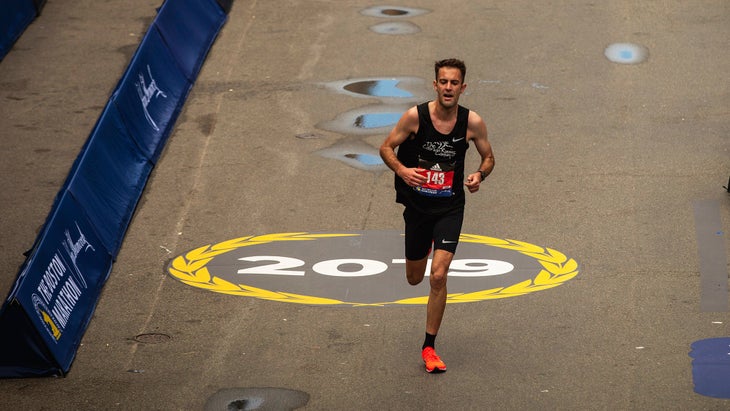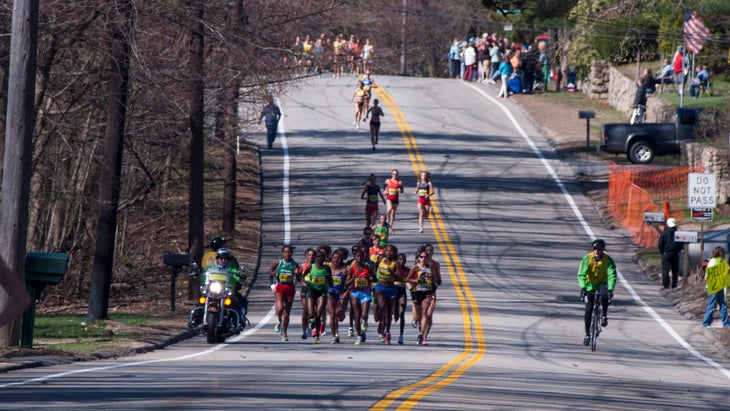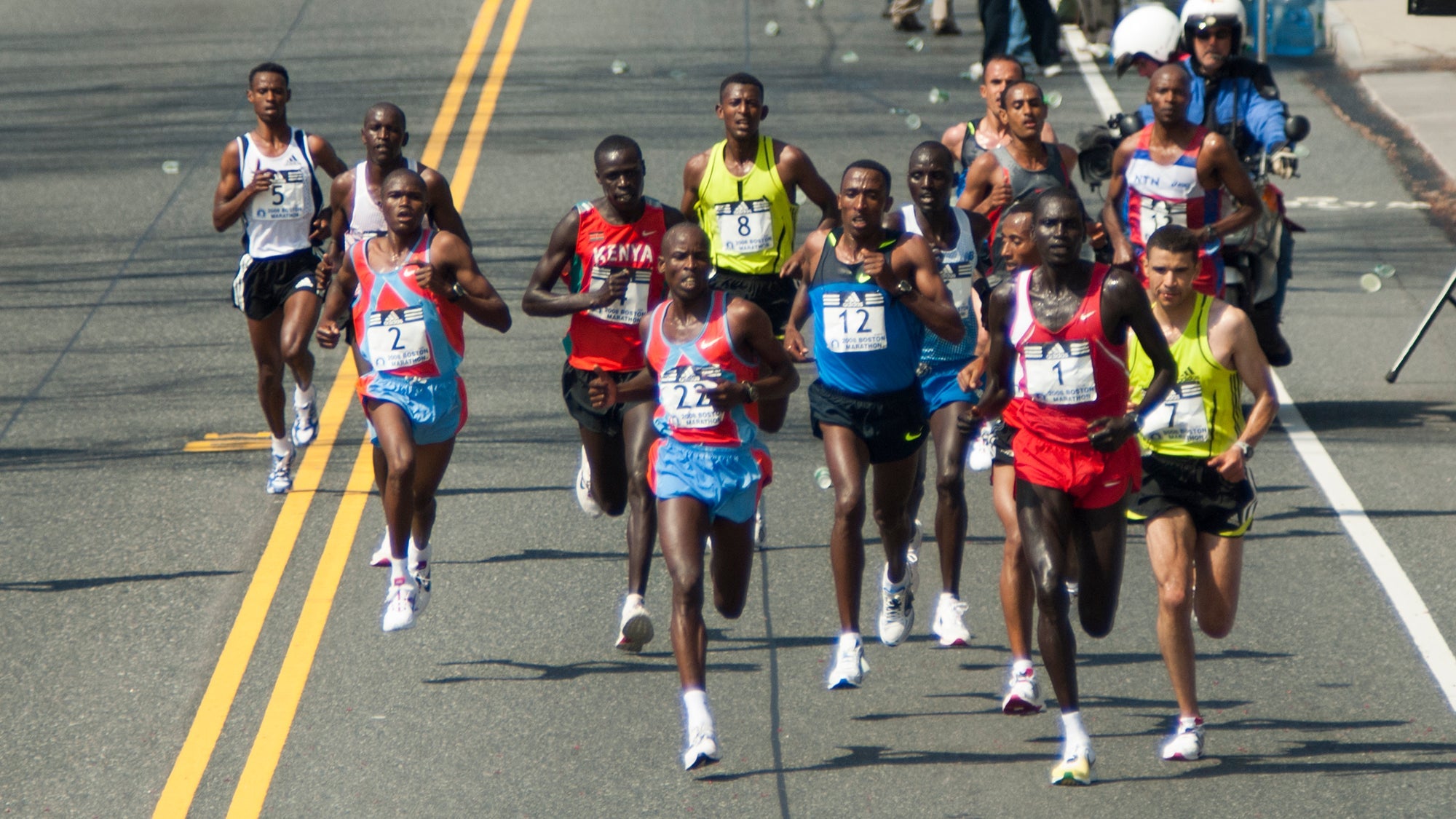Last year, for the first time in the Boston Marathon’s 123-year history, the elite men’s field was separated from the masses, starting two minutes ahead of the first wave of open runners. This year, they will start 23 minutes early, ahead of the women’s elite, who will start 15 minutes before Wave One of the open field.
Last year’s change raised some controversy over how this move altered the character of road racing, long seen as open events where all are in the same race, from the world record-holder to the last starter, and all have an opportunity to win if they run faster. Last year’s change felt like a head start for the elites, this year’s makes it clear that elites are running in an entirely different race.
The complete separation of races removes any possibility an outsider story like happened in New York last fall, where Girma Bekele Gebre, wearing bib #443 and not listed in any press kit, emerged from the masses and hung with the elite pack for the full 26.2, finishing third. It also eliminates the story of “regular guy” Stephen VanGampleare who ran a negative-split 2:18:40 PR at last year’s Boston, chasing down half of the elite field after starting 2 minutes later. The official results show him as the 26th finisher, just ahead of Olympian Abdi Abdirahman (although he crossed the line roughly 2 minutes behind Abdi, given the split start).

The new start will remove that confusion: No one is likely to catch any elites that started 23 minutes ahead. It will also, however, presumably give the “open division winner” more of a spotlight. We will be curious to see whether results will be listed separately—putting them in the same list by times creates the confusion that led to the late awarding of prize money to women who finished in the top 15 by time in 2018, although 28 minutes later on the clock.
Of course, elite women have had this division between the elite and open fields for 16 years, since the BAA gave the pro field an early, separate start to enhance television exposure and make it a women’s-only race, removing any possibility of male pacing. And, many argued last year that it was about time men were treated equally.
This new change means a similar number of men and women will be eligible for prize money, but puts men in front of the women again. The BAA says the change will increase the safety of the runners at the back of the elite women’s pack who used to get overtaken by the men’s leaders and press vehicles, as well as allow more exclusive television coverage of the women after the top men have finished.

In a written statement, Tom Grilk, Chief Executive Officer of the Boston Athletic Association, said, “We have taken a data-driven and analytical approach to determine the most optimal start times for all divisions.”
We wonder, however, whether the 15 minutes between the women’s start and the first amateur wave is adequate. Certainly many of the elites will get caught by the fastest “open” men. And maybe most of them: If our calculations are correct, had he started 15 minutes behind the elite women last year, Stephen VanGampleare would have finished between the 13th and 14th woman. In a similar setting, had Bekele Gebre started 15 minutes later and ran 2:08 he would have caught second-place finisher Edna Kiplagat by the end.
However it plays out, one thing is clear, for better or worse, we’re closer to having a professional sport, completely separated from the striving masses, who will have to earn their way to the different start line before they can compete for the finish.

